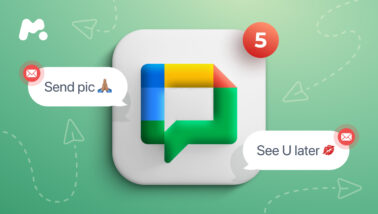
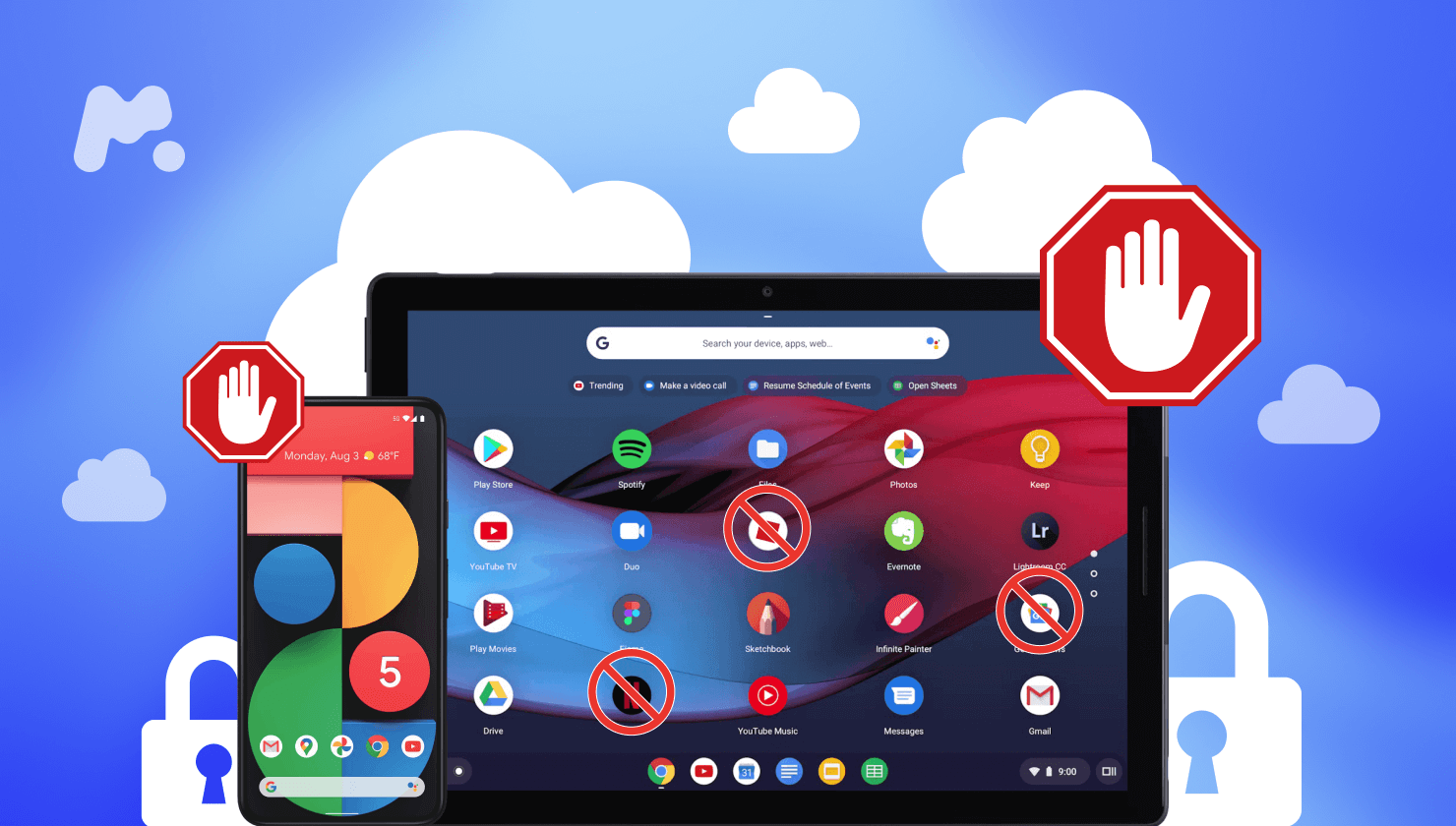
Our generation is incredibly tech-savvy. Even the youngest one knows how to use gadgets and install free apps on them. However, they have no idea about online safety and often download alluring but dangerous stuff.
Some apps that you find on Google Play may contain violent or mature content. So, parents are recommended to set restrictions on Android devices used by kids.
In this article, we’ll tell you about three ways to restrict apps on Android without kids knowing.
Table Of Contents
The Increasing Popularity of Android Apps: Google Play in Numbers
Google Play is one of the most popular mobile app providers worldwide. It offers many more apps than you could imagine: about 3.5 mln in total. Most of those apps are available for free download and don’t conform to any data security standards.
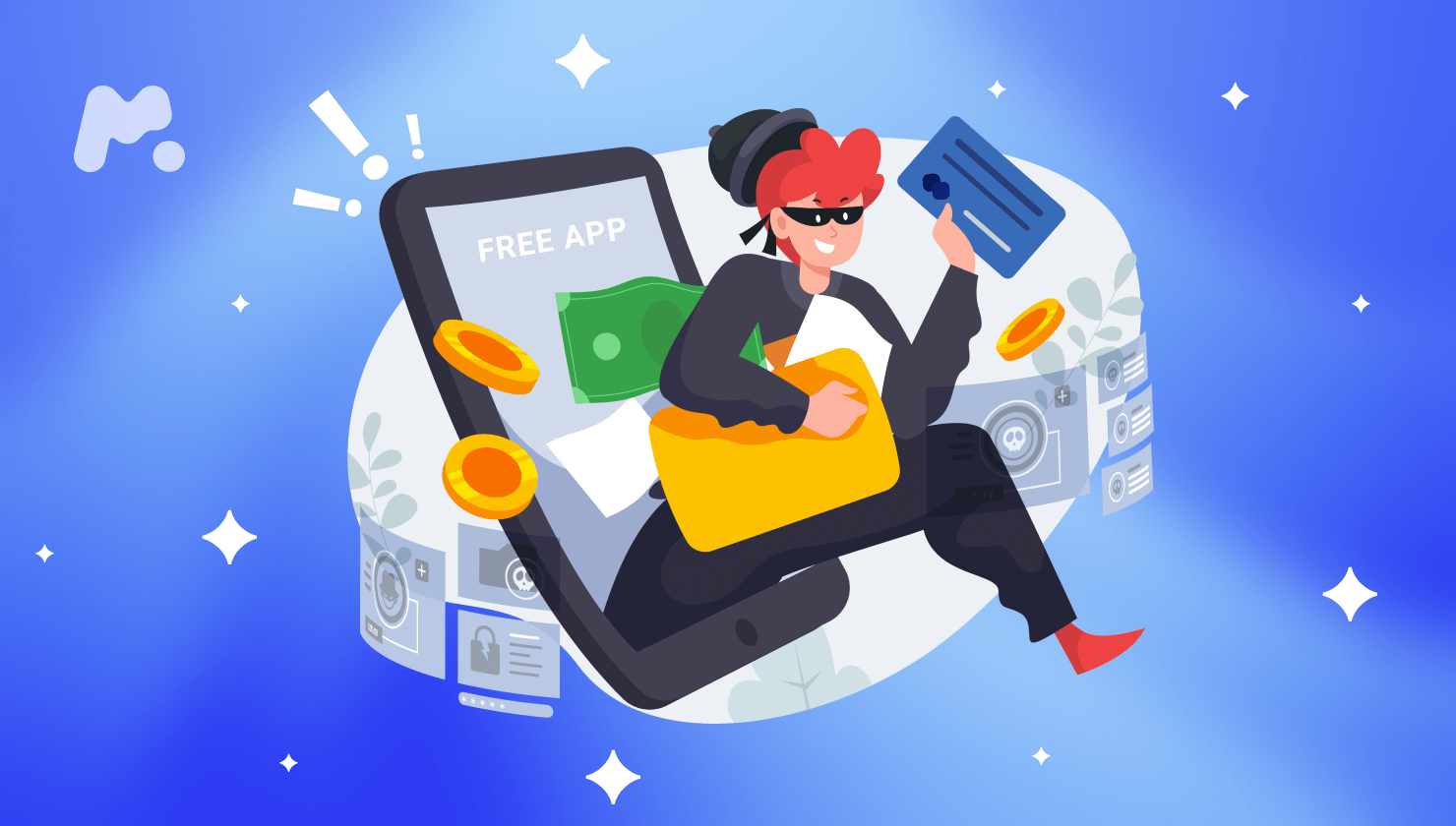
If you still don’t believe that kids have access to millions of apps, take a look at these shocking numbers:
- 3,430,919 apps are available on Google Play so far. Most of them are non-gaming apps. It means kids have many more tools to communicate with strangers than parents can imagine.
- 3,315,922 apps available on Google Play are free to download. It means that most of them aren’t supported or updated.
- An average of 2,964 new apps are delivered to Google Play users daily.
- About 774,862 app publishers have distributed apps on Google Play. Some vendors aren’t authorized and offer unofficial digital products.
- Most paid Google Play apps cost less than 1 USD.
Too Good to Be True: Why You Might Need to Block Apps on Android
As most Android apps are offered for free, our youngest one can’t help installing them. While using an app to study and obtain new skills sounds like a good idea, they mostly use apps for fun and don’t think a lot about safety.
Of course, both paid and free apps can hide insecurities for users. However, free apps come with greater risks:
- Malware. It is the most common issue that comes with free cell phone apps. The malware allows scammers to steal a user’s log-in information or the data stored on a tablet or phone.
- Personal data sharing. Some free apps are made by scammers. Their purpose is to intercept a user’s information (such as credit card details, names, and addresses) to steal their identity.
- Contact disclosing. Some apps require access to the contact list on a user’s phone. It’s not a problem to provide this data to an authorized app vendor. However, you can never know who stands behind unofficial ones.
- Locating your device. Some apps require turning on your current location. It can be dangerous for kids, as strangers can see their daily whereabouts.
Of course, parents might want to hide an app on Android for other reasons, too. They don’t want their kids to accidentally place an order at an online store or access an app with mature content.
So, finding out how to lock apps on Android can be good practice for parents.
How to Hide Apps on Android Phone: 3 Ways That Will Make It Simple
1. Restrict Access to Apps on Android With mSpy
If you wondering, “Can I block an app from my phone?” we say yes. There are actually lots of parents trying to find methods on how to block a specific app on android. We’ve got you at least 4 reliable apps to block other apps. So, let’s have a look.
The 1st option is mSpy. It’s the best monitoring app compatible with both Android and iOS devices. The app allows checking out a kid’s online activity in real-time, recording their keystrokes, and blocking apps on phone to keep them from seeing adult nature content.
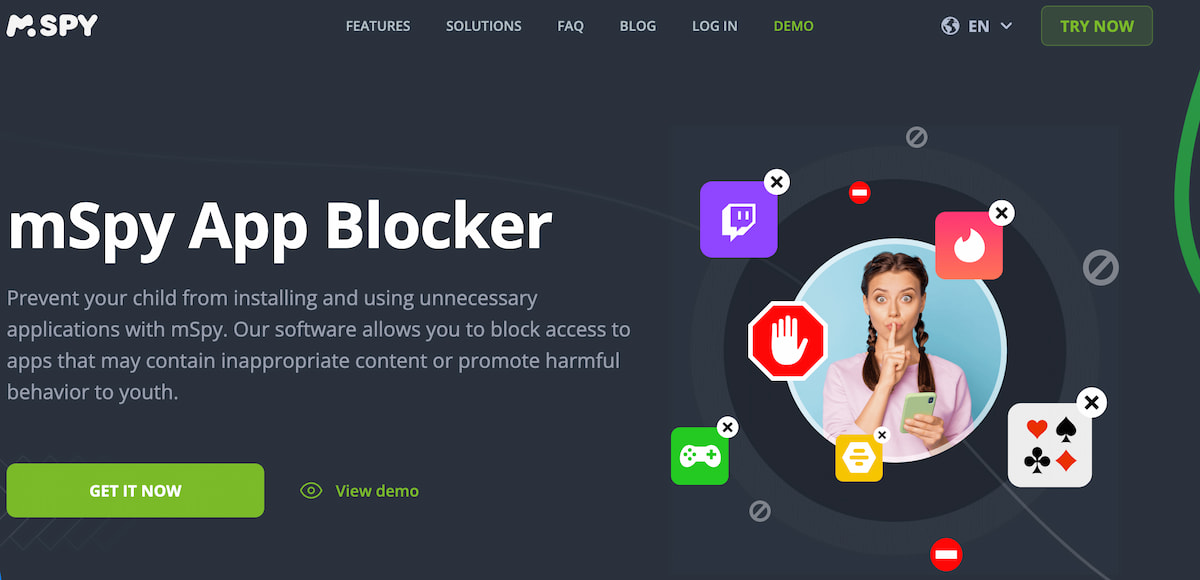
Setting up mSpy on an Android-operated device is easy:
- Go to mSpy.com and sign up. Make sure to use a valid email address.
- Buy a subscription and wait for the installation instructions to be emailed to you.
- Follow the received instructions and install mSpy on your child’s device.
- Log in to your mSpy dashboard from your smartphone and start monitoring.
2. Set Restrictions on Android via AppBlock
It’s clear from its name that AppBlock is created to block certain apps so that you and your loved ones stay focused on whatever you need to do. When it comes to restricting apps on Android, AppBlock does a great job. It can stop anything, starting with installing an app to blocking its notifications.
The best thing about this app is that it works for free. But you still need physical access to your loved one’s phone to install an app. AppBlock provides two methods of blocking: Quick Block if you want to keep things simple or Blocking Profile if you need additional restrictions based on times, places and more.
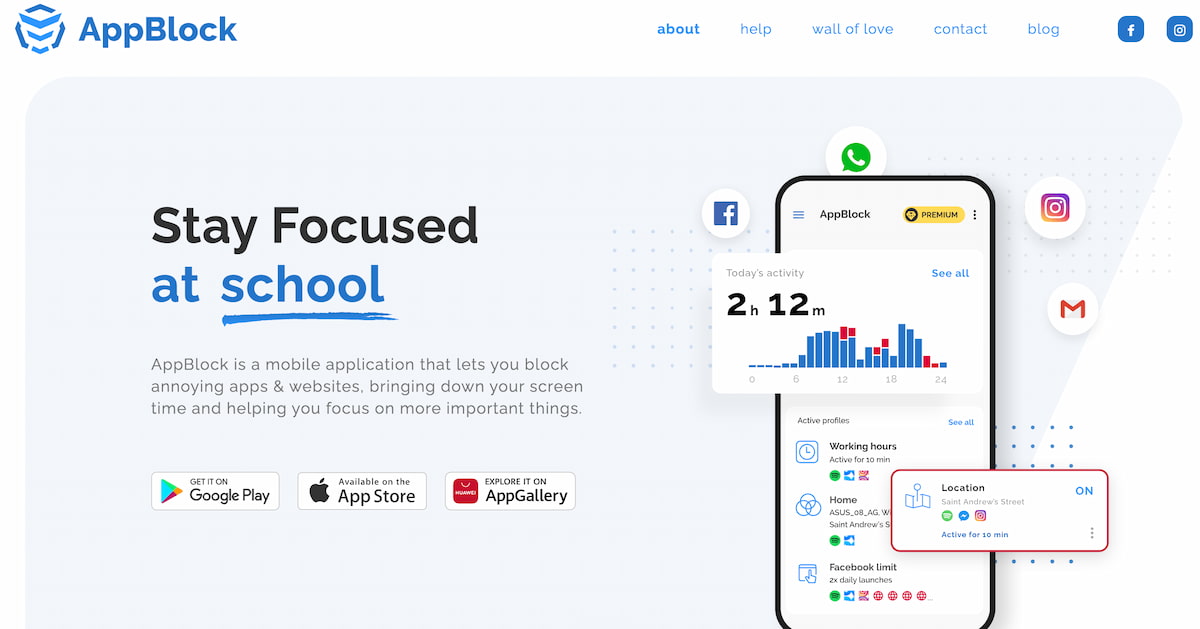
Here’s how to set up the Quick block:
- Go to Google Store and download AppBlock on your kid’s phone.
- Once it’s done, press Get started.
- Then answer some questions or just skip them.
- Choose the Quick Block method.
- Select the apps you want to block.
- Set up permissions and press Strat blocking.
AppBlock allows you to decide what days and the time period in which you want to block access to a particular app. To do that, you need to follow these steps:
- Go to the Profiles tab and click on the plus button.
- Select the conditions for app blocking: time, location, Wi-Fi, usage limit and launch count. You don’t need to use all the restrictions; just choose the ones you want.
- Choose apps & websites you want to block. You can also set restricted keywords.
- Decide what has to be blocked: application launch, notification or websites.
- Select the name for your profile and press Create.
3. Block Apps on Android With Built-in Parental Control
Google Play is home to numerous Android apps, including gaming and chatting ones. It seems pretty complicated to hide or lock every simple app that you don’t like. So, how about restricting the source?
If you wonder “How to lock Play Store on Android?” take advantage of basic Google Play parental controls.
Follow these steps:
- Open Play Store on your kid’s device.
- Tap Menu.

- Tap Settings.
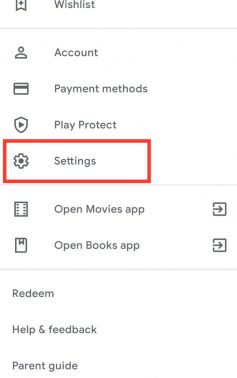
- Select Parental Controls.
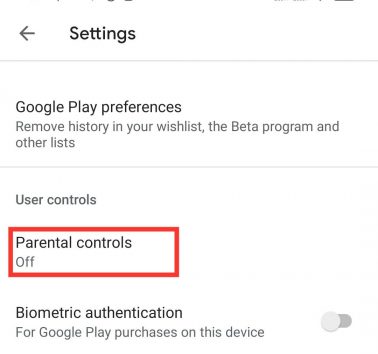
- Tap the toggle at the top right to the “on” position.
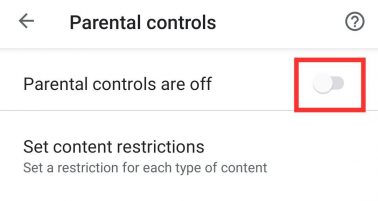
- Set up a PIN-code. You need it to prevent your child from tweaking the settings.
- Select Apps&Games and set the needed restrictions.
4. Set up App Restrictions on Android
Another way to prevent kids from utilizing potentially dangerous apps is to set up Restricted Mode on Android. Note that the feature is supported only by tablets and can’t create a Restricted Profile on a cell phone.
Follow these steps to set up a Restricted Profile on your kid’s tablet:
- Access your child’s Android tablet.
- Go to Settings > Users> Add User.
- Tap Restricted Profile.
- Set up a PIN-code to secure the newly created profile. Don’t forget to name it.
When the new screen appears, find the list of apps installed on the tablet. Tap the On/Off button next to an app to restrict or allow it. You can create multiple profiles if needed.
Why mSpy Is Worth Trying
Now you know that app locking on Android is a pretty simple process. Any parent can set basic parental controls on their kids’ Android device or install a monitoring app that can block apps on the phone.
If you’re still undecided about which method to choose, give mSpy a try. Not only will it restrict access to specific apps for your kid, but it also will provide you with advanced reporting about other online activities of a child.
Unlike Android parental control settings, mSpy can help you monitor your kid’s locations, visited websites, calls, text messages, and calendars.

